Ready to learn more?
Get all the details straight to your inbox!

Wondering where to live? Our student residence, The Student Village at Luther College, is considered a great choice for first-year student accommodation. Individual private rooms mean you can stick to your own schedule and you never have to deal with roommate hassles.
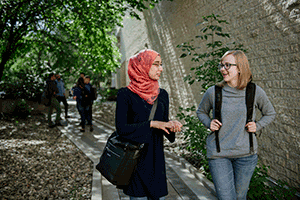
You can book a tour of Luther College, the U of R campus, and our student residence, The Student Village at Luther College, any time throughout the year. Contact our Recruitment Office at 1-306-206-2117.
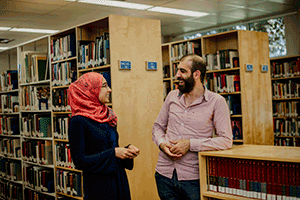
The Luther Library has over 24,000 items in its collection, 5,000 books checked out per year, and 7,000 students who come through its door per month.
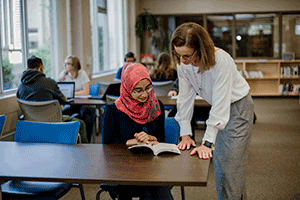
Luther College is recognized for its high standards of teaching, focused research, and one-on-one academic advising. We value and protect this heritage of excellence in scholarship, freedom of inquiry, and faithful seeking after truth.
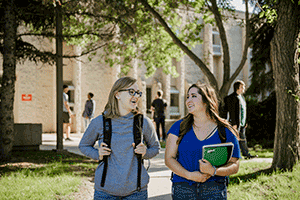
Luther College is a great choice for high school to university transition. Enjoy all the benefits of a larger campus, without feeling lost in the crowd. Our community is full of caring mentors and peers to ensure a positive student experience.

To enrol as a Luther College student, simply fill out the University of Regina application form and select Luther as your campus of choice.
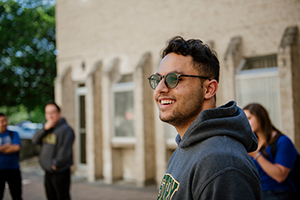
Every degree program at Luther College offers a study abroad option and an optional experiential learning component where you gain real world experience and get paid while going to school!
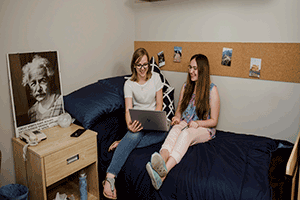
Our student residence, The Student Village at Luther College, welcomes residents from ALL post-secondary institutions in Regina. Rooms come with a meal plan, free laundry, free wi-fi, and a great sense of community.
Get all the details straight to your inbox!

Luther College at the University of Regina focuses on undergraduate (first degree) studies in the liberal arts and sciences: arts; media, art, and performance (formerly fine arts); science; and La Cité Universitaire Francophone. Luther students can also enroll in pre-professional studies that will prepare them for admission to a professional program. All degrees are four years unless otherwise noted.
For information on other programs offered by the University of Regina, visit the U of R website.
A Bachelor’s Degree is a 40-course, 120-credit-hour program that includes a set of core requirements (designed to achieve breadth), one or two majors (to achieve depth), and electives (free choices). A degree may also include one or two minors and some degrees allow for specialized concentrations.
Honours programs allow more specialization than is possible in a Bachelor’s Degree. These degrees are designed for students who wish a deeper insight and more intensive training in their major subject area, and who are able to meet the higher standards set. Students interested in entering an honours program should consult their Department Head as early as possible in their academic program, so that the program of studies may be planned in conformity with the requirements of the proposed honours program. Honours programs may include additional classes, individual research, written or oral defense of projects, and more depending on the subject area.
A Diploma is a 20-course, 60-credit-hour program that typically satisfies the core requirements for a four-year Bachelor’s Degree. Students will study a relatively wide range of subjects that are general to all walks of life rather than specific to a particular profession or trade.
A Certificate is a 10-course, 30-credit-hour program that satisfies part of the core requirements for a four-year Bachelor’s Degree.